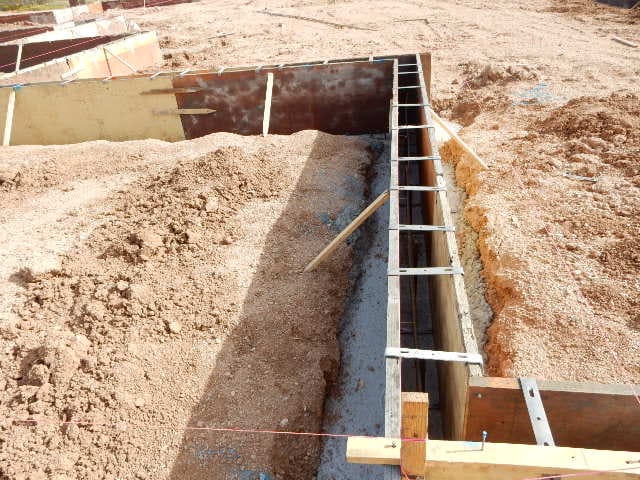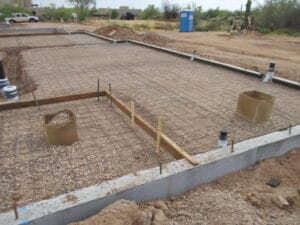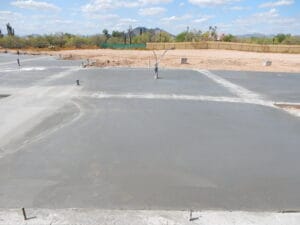Building or renovating a home in Arizona is one of the most significant investments you’ll make. Whether you’re constructing a new residence in Scottsdale, adding a second story in Phoenix, or renovating a property in Tucson, understanding how to save money on residential building projects without compromising quality is essential. This comprehensive guide will walk you through everything you need to know about residential building projects in Arizona and how partnering with a licensed structural engineer can maximize your investment.
What Are Residential Building Projects?
Residential building projects encompass any construction work performed on single-family homes, townhouses, condominiums, or other dwelling units. These projects range from ground-up new construction to renovations, additions, remodels, and structural repairs.
Common Types of Residential Building Projects in Arizona
- New Home Construction: Building a custom home from the foundation up, designed to meet your specific needs and Arizona’s unique environmental challenges.
- Home Additions: Expanding your existing living space by adding rooms, second stories, or extending the footprint of your home.
- Major Renovations: Comprehensive remodeling projects that may involve removing walls, changing the structural layout, or updating outdated systems.
- Foundation Repairs and Replacements: Addressing foundation issues caused by Arizona’s expansive clay soils and extreme temperature fluctuations.
- Structural Modifications: Removing load-bearing walls, adding support beams, or reinforcing existing structures to accommodate design changes.
- Accessory Dwelling Units (ADUs): Constructing guest houses, casitas, or rental units on your property.
Understanding the Cost Factors in Arizona Residential Projects
Before exploring how to save money on residential building projects, it’s crucial to understand what drives costs in Arizona’s unique market.
Arizona-Specific Cost Considerations
Arizona presents distinct challenges that impact construction budgets. The desert climate creates extreme temperature variations, demanding specialized materials and construction techniques. The state’s expansive clay soils expand and contract with moisture changes, making foundation design critical and often more expensive than in other regions.
Local building codes in Arizona municipalities are stringent, particularly regarding energy efficiency, seismic requirements, and heat mitigation. Meeting these standards requires experienced professionals who understand the regulatory landscape.
The Hidden Costs of Cutting Corners
Many homeowners attempt to save money by skipping professional structural engineering services or hiring unlicensed contractors. This approach typically backfires, resulting in:
- Code violations requiring expensive corrections.
- Structural failures necessitating complete rebuilds.
- Failed inspections that delay occupancy and increase holding costs.
- Reduced property values due to improper construction.
A licensed structural engineer identifies potential problems during the design phase when changes cost hundreds rather than thousands of dollars to implement.
10 Proven Strategies to Save Money on Residential Building Projects
1. Engage a Licensed Structural Engineer Early
The single most effective way to save money on residential building projects is hiring a licensed structural engineer during the planning phase.
How This Saves Money: Early engineering involvement prevents costly redesigns during construction. Engineers optimize structural systems to use materials efficiently without over-engineering. They identify soil conditions and foundation requirements before excavation begins, preventing expensive surprises. Their designs pass inspections on the first attempt, avoiding delays and reinspection fees. The professionals at Schembri Engineers offer a full range of Structural Engineering and Design Services.
2. Choose the Right Foundation System for Arizona Soils
Foundation selection dramatically impacts both initial construction costs and long-term maintenance expenses in Arizona.
- The Engineer’s Role: A licensed structural engineer evaluates your specific site’s soil conditions through geotechnical analysis and recommends the most cost-effective foundation system for your location. This site-specific approach prevents both over-engineering and under-engineering.
3. Optimize Your Design for Structural Efficiency
Architectural beauty and structural efficiency can coexist when an engineer collaborates with your architect from the beginning.
- Design Principles That Save Money: Rectangular floor plans and simple roof geometries cost significantly less to frame. Aligning walls between floors in multi-story homes allows loads to transfer efficiently, reducing the need for complex and expensive beam systems.
4. Implement Strategic Material Management
Material costs typically represent 40-50% of your total construction budget. Work with your structural engineer to develop detailed material specifications and quantities. This precision prevents over-ordering (tying up capital in unused materials) and under-ordering (causing construction delays and emergency purchases at premium prices).
5. Leverage Innovative Construction Methods
Modern construction techniques offer significant cost savings compared to traditional stick-built methods.
- Panelized Systems: Wall and floor panels constructed off-site can reduce framing time by 50% or more, which is crucial for minimizing labor costs in Arizona’s extreme heat.
- Advanced Framing Techniques: Use 24-inch stud spacing where appropriate, reducing lumber usage by up to 30% while maintaining structural integrity.
6. Navigate Arizona Building Codes Efficiently
Every Arizona municipality has its own building department with specific interpretations of state codes.
- Code Compliance from the Start: An experienced structural engineer designs to code from day one, ensuring smooth approvals and preventing expensive redesigns and plan resubmittals after a failed inspection.
7. Strategic Contractor and Supplier Relationships
Provide the same detailed engineered plans to multiple qualified contractors. Your engineer can review bids to identify unrealistic pricing (either too high or suspiciously low) that might indicate misunderstandings or quality issues.
8. Invest in Energy Efficiency for Long-Term Savings
Arizona’s extreme climate makes energy efficiency a financial imperative. Your structural engineer coordinates with other specialists to ensure the building envelope minimizes heat gain and utilizes strategies like thermal mass.
9. Plan for Arizona’s Extreme Weather
Arizona’s climate isn’t just hot; it’s extreme. Your structural engineer designs roof systems to handle rapid water drainage during the Monsoon Season, specifies wind-resistant construction, and plans grading to prevent water intrusion and foundation damage.
10. Avoid Common Costly Mistakes
- Skipping the Soils Report: This typically costs $1,000–$3,000 but can save tens of thousands by identifying soil conditions before construction.
- Changing Plans During Construction: Field changes are expensive, often costing 3–5 times more than incorporating the same change during design.
- DIY Structural Modifications: Never attempt to remove a load-bearing wall without consulting a licensed structural engineer.
How to Choose a Licensed Structural Engineer in Arizona
Selecting the right structural engineering firm is critical to your project’s success.
Licensing and Qualifications
Verify that any engineer you consider holds a current Arizona Structural Engineering license. Ensure your engineer has specific experience with residential projects similar to yours and possesses local knowledge of Arizona’s soils, climate, and building departments. For detailed guidance, review our Residential Structural Engineering Services in Arizona: Your Complete Project Guide.
The Value Proposition
Hiring a licensed structural engineer adds to your upfront costs, typically 1–3% of construction costs for engineering services. However, this investment typically saves 5–15% of total project costs through optimized designs, avoided mistakes, faster permitting, and reduced construction delays.
Working with Schembri Engineers on Your Arizona Project
At Schembri Engineers, we understand that every dollar matters in your residential building project. Our approach focuses on delivering maximum value through intelligent design, local expertise, and personalized service.
Our Process
- Initial Consultation: We begin by understanding your vision, budget, and concerns.
- Site Evaluation: We review geotechnical reports to understand your site’s specific conditions.
- Collaborative Design: We work closely with your architect and contractors to develop structural solutions that support your design goals while optimizing costs.
- Value Engineering: We systematically review the design to identify cost-saving opportunities.
- Permitting Support: Our familiarity with Arizona building departments expedites the approval process.
- Construction Support: We remain available during construction to answer questions and provide solutions to unexpected issues.
The Bottom Line: Smart Spending on Residential Building Projects
Saving money on residential building projects isn’t about finding the cheapest option; it’s about making informed decisions that optimize value. Working with a licensed structural engineer isn’t an expense—it’s an investment in your project’s success.
Ready to Start Your Arizona Residential Building Project?
Contact us today to discuss your residential building project and discover how our expertise can maximize your investment while ensuring your structure is safe, efficient, and built to last in Arizona’s challenging environment.
About Schembri Engineers: Schembri Engineers is a licensed structural engineering firm serving residential and commercial clients throughout Arizona. Our team of experienced professional engineers specializes in cost-effective structural solutions that meet the unique challenges of Arizona’s climate and geology. We’re committed to excellence in engineering, exceptional client service, and creating structures that stand the test of time.




